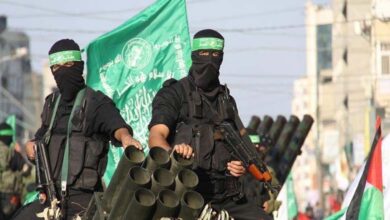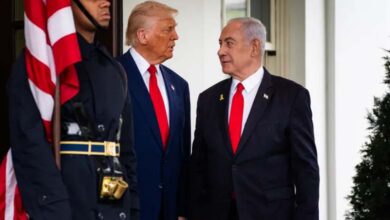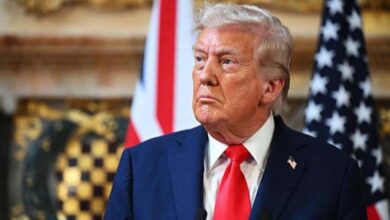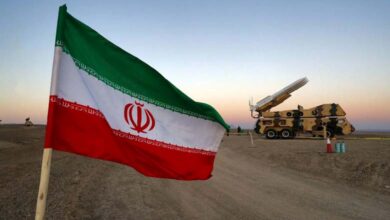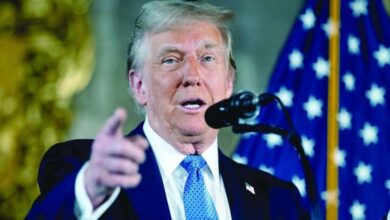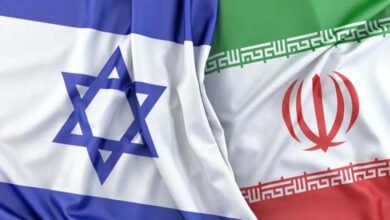Hamas out of power: Macron outlines key conditions for recognizing Palestine
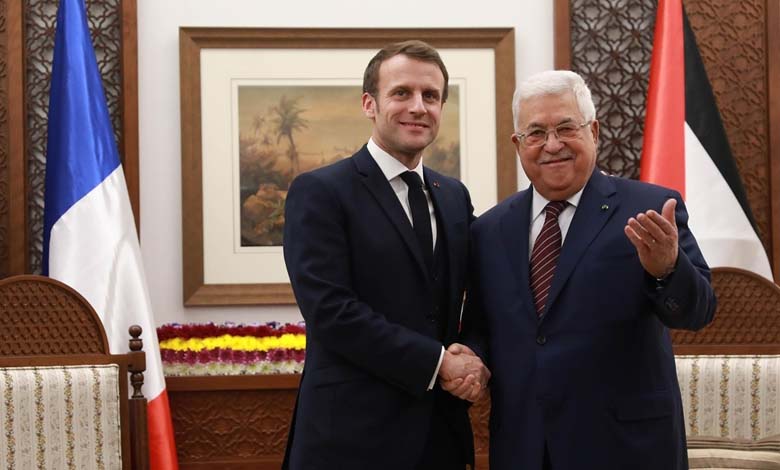
Disarming Hamas and excluding it from governance are among the top conditions set by French President Emmanuel Macron for the recognition of a Palestinian state.
On Friday, Macron said that recognizing a Palestinian state is “not just a moral duty, but a political necessity”, while outlining some of the conditions required to make it happen.
-
Unprecedented Move: Ireland Plans to Ban Products from Israeli Settlements
-
Gaza War Haunts Israeli Fans in France: Clashes and Protests
This statement comes ahead of his participation in a United Nations conference on the matter, scheduled for June 18.
During a press conference held in Singapore, Macron urged Europeans to tighten their collective stance toward Israel “if no substantial humanitarian response is provided in the coming hours and days” in Gaza.
In such a case, he said, the European Union should enforce its regulations, including suspending mechanisms based on respect for human rights — which he says is currently not the case — and imposing sanctions, referring to the EU-Israel partnership agreement, which is now under review.
-
One Year of War: A Comprehensive Emirati Diplomatic Epic to Support Gaza
-
Armenia Becomes Fifth Country to Recognize Palestine Since the Outbreak of the Gaza War
“Yes, we must take a firmer stance because it is necessary now,” he emphasized, while expressing hope that the Israeli government will soften its position and provide a humanitarian response.
France and Saudi Arabia are set to co-host an international conference on the two-state solution between June 17 and 30, to be held at the UN headquarters in New York.
Hamas
Macron reiterated that establishing a Palestinian state under certain conditions is not merely a moral obligation but a political demand, though he did not confirm whether he would officially recognize Palestine during the conference.
-
UAE’s call for peace: An arab appeal to protect innocents in Palestine
-
Slovenia Becomes Fourth European Country to Recognize Palestine Amid Gaza War
The conditions he listed include:
- The release of hostages held in Gaza since Hamas’s attack on southern Israel that ignited the war,
- The disarmament of Hamas,
- Hamas not taking part in governing the future Palestinian state,
- The recognition of Israel and its right to live in security,
- And the establishment of a regional security framework.
“This is what we will try to affirm during the important moment of June 18,” he said.
-
Support for Palestine in words and Israel in actions… Journalists: Turkey continues its strategic trade with Tel Aviv (Figures)
-
France prepares to expel a leader of the popular front for the liberation of Palestine
Gaza Conflict and West Bank Developments
The White House announced on Thursday that Israel had accepted a U.S.-brokered ceasefire proposal for Gaza, which was also presented to Hamas. However, the movement stated that the proposal “does not meet any of our people’s demands.”
So far, talks to end the war, ongoing for more than 19 months in the besieged Palestinian territory, have failed to yield any progress.
In the West Bank, Israel announced Thursday the creation of 22 new settlements, a move likely to further strain its relations with much of the international community, which considers such settlements illegal under international law.
-
UAE support for Palestine… Continuous Emirati efforts on various political and diplomatic levels
-
Shereen Abu Aqleh “the voice of events in Palestine” is killed while reporting on an Israeli raid
The decision sparked international condemnation amid growing fears over its impact on the viability of the two-state solution.
Some European countries had previously imposed sanctions on Israeli settlers, as did the U.S. under President Joe Biden, though these were lifted under President Donald Trump.
The international community has long asserted that settlements represent one of the main obstacles to a lasting peace, as they undermine the possibility of establishing a viable Palestinian state.
“Credibility Test” for the U.S. on Ukraine
On Ukraine, Macron said the United States faces a credibility test regarding sanctions on Russia if Moscow refuses to commit to a ceasefire.
Speaking in Singapore, he said that if Russia proves unwilling to make peace, Washington must demonstrate its commitment to penalizing Moscow, stressing that this is “a test of American credibility.”
Speaking at a joint press conference with Singapore’s Prime Minister Lawrence Wong, Macron added that he had discussed the issue 48 hours earlier with former U.S. President Donald Trump, who expressed growing impatience.
-
Palestine receives Humanitarian Aid from Egypt
-
UAE gravely concerned about situation in Palestine and calls for ceasefire
“The question now is: what will we do? We are ready,” he said.
Later in the evening, Macron will deliver a speech at the opening of the Shangri-La Dialogue, a major Asian security and defense forum that was attended by Ukrainian President Volodymyr Zelensky last year.
On Thursday, UN Under-Secretary-General for Political Affairs Rosemary DiCarlo told the Security Council that hopes for any breakthrough in negotiations between Russia and Ukraine were diminishing in light of recent escalations.




